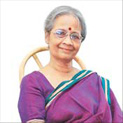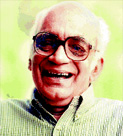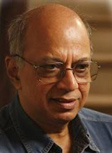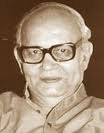| Shanta Gokhale (The Sunday Times of India, Dec 26, 1993) |
Kamalakar Nadkarni (Maharashtra Times, Aug 19, 1993) |
|||
 |
To move on to significant events in theatre, I would say the success of Dhyanimani, written by Prashant Dalvi and directed by Chandrakant Kulkarni, vindicates the belief that the audience is not a moron that needs to be hammered on the head to feel, think, laugh or cry; that it will respond to an uncompromising play if the play is meticulously crafted, crisply directed, has strong, well-etched characters and gives the audience something to think about. Dhyanimani marks one more stage in the aim this young writer-director team seems to have set for itself-- to infuse the commercial stream with as much as it can take of the seriousness of 'parallel' theatre in which both had their beginnings. |  |
 |
|
| Satish Alekar (Maitreya Puraskar Sohla) |
Madhav Manohar (Times of India- Wed. 19 Aug. 1992) |
|||
 |
 |
 |
‘CHARCHAUGHI’ has become the focus of much attention over the last year, not only for drawing full houses wherever it goes- that happens to many other plays- but for having been so widely discussed in the press and women’s groups. It has to be recorded as one of the phenomena of recent theatre, not just in the Marathi language but any language for that matter. It deserves fully the success it has received. |
|
| 1 | 2 | 3 | 4 | ||||
